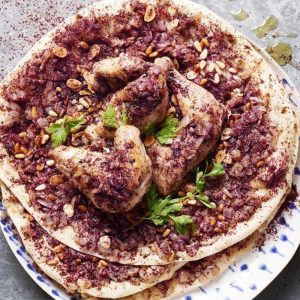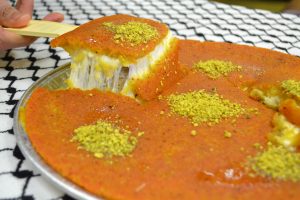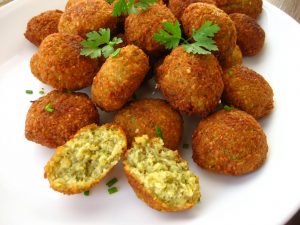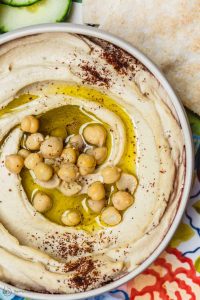Palestinian cuisine is becoming trendy worldwide; people are interested in and curious about our traditions, our creative cuisine, and our restaurant scene. From tourists to locals, from expats to star chefs, the world’s eyes are turning towards Palestine’s cuisine and restaurants.
The variety of our terroir reflects on our restaurant scene and on the small traditional holes-in-the-wall that serve excellent traditional foods that you will find in all Palestinian cities.
Before exploring our restaurant scene, we need to have a quick look at our culinary traditions. Palestine’s food is as diverse as our terroir and the civilizations that passed through the land. Is our cuisine Bedouin? Of course not, but Bedouin cuisine is part of our culinary tradition and identity. Is it a maritime cuisine? Again, no, but the recipes of Gaza and Yaffa are part of our kitchen. Is it a Mediterranean cuisine? Again not, but the Mediterranean landscapes have influenced us.

When visiting Palestine, do not look only at the country’s archaeological and religious sites. Introduce food and gastronomy into your visit plans and you will taste and smell fantastic produce, sample great recipes, and meet interesting Palestinians all along the way.
Whether you plan to discover Palestine’s tastes alone or with a tour, plenty of options exist. From my friend Izzedin’s Sacred Cuisine tours in Jerusalem to our partners at Farayek in Bethlehem with the great duo Nadeen and Christine, Palestine’s food tours are there for you to enjoy. You never know, you may see me pop in on one or the other!
If you are organizing your own tour, start with the producers. In the northern West Bank, take the time to visit Canaan Fair Trade and meet the visionary Nasser Abu Farha. In the Ramallah area, go taste the beer and wines at Taybeh, and chat about wines with the brilliant Canaan. In Jerusalem, pop in to Al-Jebrini Tahina factory. In the Jericho area, drive to the northern Dead Sea to discover the fantastic salt produced by our friend Hussam Hallak at the West Bank Salt Company. In Bethlehem, don’t miss the Orient Mills; Tewfic roasts the best coffee on this side of the world. In Hebron, stop by any of the halkoum producers and taste that sweet fragrance of flower delight.

Now to the restaurants, small food shops, and sweet shops. Every Palestinian city has a few iconic places. Listing them all in an article is rather impossible, but we’ll take a glance at every city’s historic addresses.
When in Nablus, dive into the old city’s alleyways until you spot a butcher and a baker close by. All these shops will have a few small chairs in front of them and a small kanoun. Sit down and ask them for arayes! You will see the meat cut and minced in front of your eyes, stuffed into a freshly baked kmaj, and grilled over the charcoal. Order some goat yogurt on the side. After that light snack, hike to the heart of the old city and follow the delicious smell of knafeh nabulsiya being prepared. The go-to address is Al-Aqsa Sweet. Watch the artisans create fresh knafeh, and enjoy the melting delicious nabulsi cheese.
If you are in the north, it is worth going to Sebastya just for the food. Ask for Abu Mohammad and his restaurant for fragrant freekeh soup and a delicious musakhan. The rich olive oil and the tangy sumac make his musakhan unmissable.
In Ramallah, the choices are many – first among them are Bandali for hummus in downtown old Ramallah, Zarour for being one of the oldest mezze and grilled-meats restaurants in the city, and of course, Rukab’s for ice cream.
The change in the city’s demographics and socio-cultural life was well-seized by visionary restaurateur Osama Khalaf when he created Darna, a high-end Palestinian restaurant and the place to be seen in Ramallah. Last in the city’s restaurant scene are the newer restaurants, such as Azure, Al-Riyad, Zest, or Pronto, that offer an international staple and some Palestinian classics.
Jerusalem, capital of Palestine, has also been historically our food capital. From Izhiman’s coffee to the great Jerusalem ka’ek bakers in Musrara, many institutions have survived the occupation of Jerusalem and persevere in delivering highly flavorful foods. From the old city’s food dives such as Abu Shukri for hummus, Zalatimo for the light, fluffy motabak, to the more established restaurants of the city, the American Colony, the Rooftop at Notre Dame, Al-Zahra, and many others, Jerusalem offers a variety of local cuisine and a hodgepodge of international dishes.


Jericho’s beautiful oasis feeds the rest of Palestine with wonderful agricultural produce, from that of the small date farmers to the foragers of herbs (khbeisa, huwerneh), and of course the bananas and the citrus fruit. Stop by any bayara (orange grove) in season and buy the fruit off the tree. Pure heaven!
Regarding restaurants, Jericho, with its long tradition of being a winter spot for all families from Jerusalem, Bethlehem, and Ramallah, offers wonderfully fresh mezzes, grilled meats, and fresh lemonade or a glass of chilled arak in most restaurants. Visitors have the choice between the older establishments such as the Rawda or the newer addresses such as Limona or Al-Bayara.
Bethlehem, “house of meat” in Arabic; but let us start with a stop at the best falafel and hummus in town, Afteem. A few steps away from the Church of the Nativity, the family-owned enterprise has been offering visitors and locals everything from hot, fresh falafel to delicious hummus fatteh. If your palate prefers mezzes, the choices are many, but the oldest institutions in town are Abu Eli, Abu Zouz, and Abu Shanab. For refined Palestinian contemporary cuisine, come visit me at Fawda in the Hosh Al-Syrian Guesthouse. The city also offers many young chefs’ interpretations of international dishes and Palestinian classics in numerous restaurants.
In Hebron, the restaurant scene has a tradition of great Palestinian dishes such as stuffed lamb necks, fukharah, mansaf, and ouzi. The traditional places such as Abu Mazen, Zuwwar, Al-Sham, and Al-Quds are some of the best.


